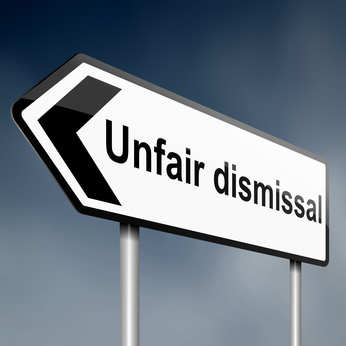
Been dismissed unfairly? Here are 10 things you should know about making an unfair dismissal claim.
1. 20% of unfair dismissal cases are won because the employer was wrong to dismiss the employee. 80% are won because the employer didn’t follow correct procedure – whether or not they were right to dismiss.
A good employment law solicitor (like us, hint, hint!) will be able to tell the employment tribunal or court whether or not the correct procedures were followed in your case.
2. Write down everything that happened in the lead-up to your dismissal, including dates and details of meetings, discussions, and any disciplinary actions that were taken (such as verbal or written warnings you received). Also write down exactly what happened when your employer dismissed you. Be specific, including Who, What, When, Where, Why and How.
For example: “At 10am on Monday 14 November, my supervisor Mary Jones called me to her office and told me I was fired because I was always late for work.”
Include everything you can think of, including all the names, dates and details. Let your solicitor decide whether or not it’s relevant. Preparing a thorough witness statement makes you seem more credible to the court.
3. Be aware it may take a long time for your case to be heard. That’s another reason why it’s important to write a detailed statement now, while you can remember, to use as evidence later.
To speed things up, it’s important to provide everything you are asked for as soon as possible.
4. Give your solicitor a copy of your employment contract, staff handbook, letters and notes of meetings. Include every diary entry and document that relates to the investigation or dismissal, no matter how minor you think it is.
These documents can be most useful to help you win your case.
5. If your co-workers are willing to give evidence in your case, ask them to write a witness statement early, in case they get ‘scared off’ later by your employer.
6. Unfair dismissal awards are based on loss of income, so you must prove you are trying to get a new job to minimise your loss. If you don’t, you might not receive any compensation even if you do win your case. Keep a copy (including dates) of:
- Your CV
- Every application you submit
- Every email you send
- Every reply you receive
- Any documents you receive if you get a job interview or sign up for training courses through the job centre
7. It can take five to ten hours or more for your solicitor to prepare your case, including:
- Meetings with you to take instructions
- Writing to you
- Preparing forms for the tribunal
- Dealing with questions from you or your employer
- Travelling to and from tribunal
What’s more, it can take a long time for your case to be heard with cases in the Tribunal lasting between one and two full days.
The less time your solicitor has to spend on your case, the lower your fee will be. So:
- Communicate by letter or email instead of making an appointment
- If you do make an appointment, let the solicitor know what you want to discuss, so they can prepare in advance and spend less time on your file
- Take all information and documents with you, filed in date order so they are easy to find
8. Go and watch an unfair dismissal case being heard – most are public, and it gives you a good idea about what to expect when it’s your turn.
9. Most cases don’t get as far as the employment tribunal, so decide what amount you would be willing to accept in settlement. The best time to negotiate is after your claim form (ET1) has been submitted and your schedule of loss has been sent to the other side.
It’s in the employer’s interests to reach a settlement agreement with you (known as a compromise agreement in Northern Ireland), because being represented at an employment tribunal is expensive and they will want to minimise their costs.
10. You can represent yourself, but we recommend you appoint a specialist employment law solicitor as soon as possible after you have been dismissed. This is because:
- Your employer is likely to use expert employment law solicitors against you
- You won’t be taken seriously if you get things wrong because you don’t understand employment law
- Any claim must be lodged within six months (this period can only be extended in exceptional circumstances)
- You need to comply with company procedure about lodging an appeal against your dismissal (if not, you might receive less compensation)
- The longer you wait, the more likely it is that you will forget important facts (this also means you might not receive as much compensation)
- The case is likely to go through faster when the issues can be identified quickly
Need help?
For a free initial review of your claim, call 0808 168 7288 or Make An Online Enquiry>.
We have already helped thousands of people to win millions of pounds in compensation.
You have a choice of ways to pay, including ‘no win, no fee’.
We will also discuss the best methods of funding your case and seek to reach a solution that best suits your needs. This can involve a “no-win, no-fee” agreement if appropriate.
